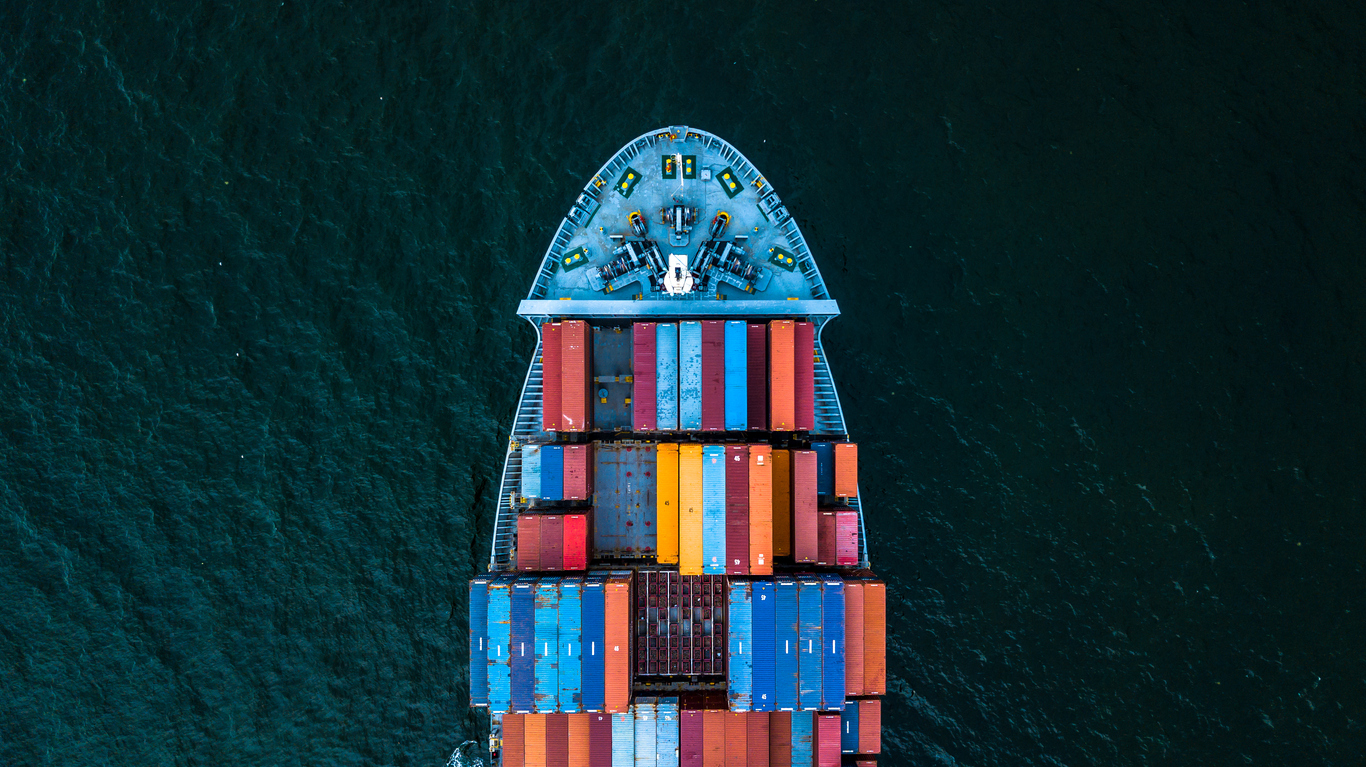As the holiday season ramps up, global shipping volumes of marine cargo naturally tend to surge — which is why marine cargo businesses need to make sure they’re properly insured.
After all, with more cargo comes more risk, from crowded ports to tighter delivery windows to heightened security threats. Companies moving goods by sea, rail, or road need to be vigilant to get through the season without any serious (and potentially expensive to fix) problems.
Q&A: Understanding Marine Cargo Insurance During the Holiday Rush
Why Does Cargo Risk Increase Over the Holidays?
During the holiday season, your operations face multiple stressors. Volumes of cargo escalate, delivery schedules shorten, and shippers often face more fixed-windows or expedited timelines. With more containers, there are more pieces of cargo and more intermodal moves (truck, rail, vessel). There’s simply more to manage — and more that can go wrong.
On top of all that, port congestion becomes a major factor. When ships dwell longer, containers pile up, handling becomes bottlenecked, and the risk of mishandling, theft, or damage rises.
Staffing issues can also play a part. Temporary labor may be employed, fatigue becomes more likely, and the pace of operations picks up. Late-season weather (storm systems, rough seas, port closures) may add another layer of challenge. All of these factors combine to create a perfect storm of risk during the holiday shipping cycle.
What Types of Incidents Are Common at This Time of Year?
- Handling errors and equipment mishaps: With more cargo moving, stevedores and freight handlers can be stretched, increasing the chance of damaging containers.
- Delays and cargo dwell time: Longer wait times at ports or terminals create exposure to pilferage, container breach and environmental damage (for example: moisture, humidity, condensation).
- Transit disruptions: Weather-related disruptions, rail or truck delays, and missed sailings can lead to higher costs, missed delivery windows, or spoilage for time-sensitive goods.
- Theft or security breaches: With higher volumes, you have more touch-points where thieves can possibly help themselves (cargo traveling by truck, rail, and ship). Also, busy shipyards may draw more opportunistic thieves, leading to cargo losses.
- Environmental and sea-peril exposure: Rough seas, storms en-route, or extended port stays increase the risk of damage.
- Supply-chain issues: Delay one leg of the trip, and you may incur demurrage, container repositioning costs or accelerated freight expenses.
How Does Marine Cargo Insurance Help?
Marine cargo insurance protects your goods against the kinds of losses we just described. It covers everything from loss, theft, or accident-related damage to intense storms, handling errors, and other perils.
Are There Exclusions?
Yes. Like any insurance product, marine cargo policies come with important exclusions and conditions you’ll want to be aware of. Some standard exclusions include:
- Intentional acts or misconduct and losses arising from war, strikes, or civil commotion
- Normal wear and tear to a ship, damage resulting from gradual deterioration, or inherent vice (for example, goods that spoil because of their own nature)
- Improper packing or insufficient stowage
- Losses tied to an unseaworthy vessel or carrier if the vessel was not fit for the voyage
In short, if you’re following best practices and a loss occurs despite your precautions, you’re likely covered. Still, it’s important to review your policy with your insurance agent to identify and address any potential coverage gaps.
How Can Businesses Reduce Losses?
Insurance helps backstop your risk. But to keep your rates low and, most importantly, to keep everyone safe, you’ll still want to reduce exposure proactively. Complacency and shortcuts tend to lead to expensive accidents.
- Conduct a thorough risk assessment: Study your routes, carriers, handling nodes, storage intervals, and the potential exposures under peak-season strain.
- Select trusted carriers and terminals: Partner with stevedores and logistics providers that have strong track records, robust security, and proven reliability.
- Increase visibility and tracking: Real-time tracking, container monitoring, temperature and humidity sensors, and good chain-of-custody practices can all reduce risk.
- Improve packaging and stowage: Pack goods correctly for sea and air transit, rough weather, and handling shifts.
- Communicate with your insurer: Update Mariners Insurance about any changes to your shipping patterns, higher-value goods, new destinations, or different modes of transport.
Strengthen Your Coverage Before Peak Season
With the holiday shipping rush already in motion, now is the time to act. If you’re a marine cargo business preparing for heavy inbound or outbound volume, schedule a review with Mariners Insurance.
Let us help ensure that your policy aligns with your shipping operations, inventory value, and risk exposures. Whether you’re packing raw materials, finished goods, or high-value items, don’t leave this season’s shipments unprotected.
About Mariners General Insurance Group
Mariners General Insurance Group was founded in 1959 to protect boat owners and marine business clients. We are marine insurance experts and insure boats worldwide — in every ocean on the planet. Marine insurance is critical if you own a boat or nautical business. Trust the professionals with all of your boat insurance needs — trust Mariners Insurance. Call us at (888) 402-5018 any time you have questions or concerns about insurance for your vessel or marine business.
